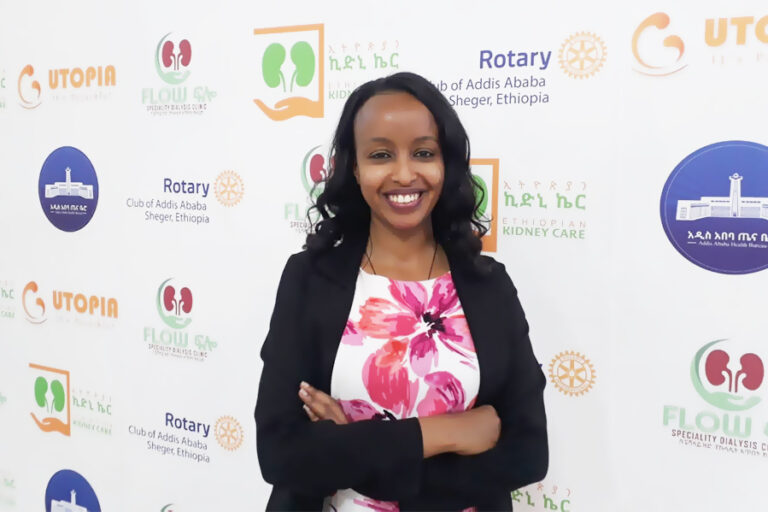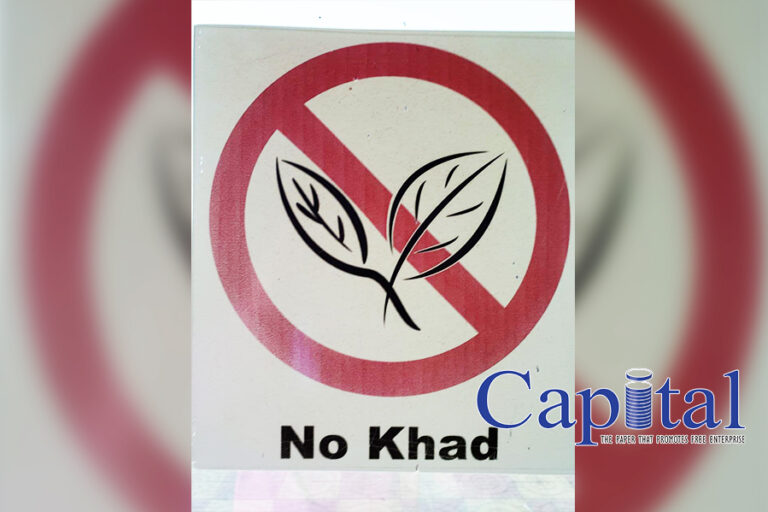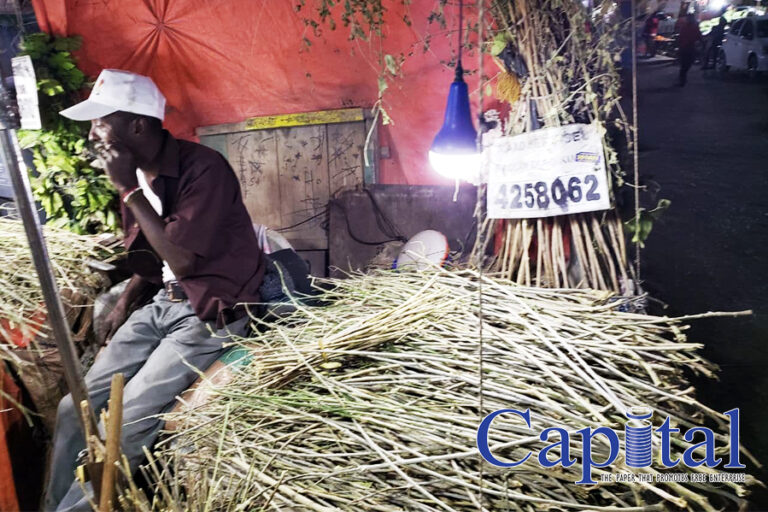Many experts agreed that the efforts by so many countries to produce and distribute in the world their own, national, anti-COVID 19 vaccines have set in motion a new form of geopolitical and soft power competition. A headline in the recent publication of “Foreign Affairs” magazine proclaimed: “Beijing Hasn’t Won the Soft-Power Stakes But It Has An Early Lead.” As recently as February 13, the United States government was accused by the “Wall Street Journal” of just “looking on.”
By way of contrast, said the “Wall Street Journal” reporting from Ethiopia, in the week of February 21 alone, a million Chinese government-backed doses passed through Addis Ababa Bole International Airport, destined for Ethiopia and surrounding nations. At least 69 countries have now received such doses in the Middle East, Europe, Latin America, even Oceania.
On 14 May 2021, the People’s Liberation Army of China has donated COVID-19 vaccines to the Ethiopian National Defense Force as part of strengthening strong cooperation between the two countries. During the handing over ceremony, China’s Ambassador to Ethiopia Zhao Zhiyuan said this is a good example of the profound traditional friendship between the two countries and the close sisterly cooperation of the militaries.
According to him, militaries of the two countries are working closely in many other areas. As close friends, reliable partners and good brothers of Ethiopia, the PLA will standby firmly with the Ethiopian Defense Force to fight against the pandemic together and also in difficult times.
All this was regardless of China’s own population, where observers calculate that only 3.65% of citizens had been vaccinated by the end of February according to “la Repubblica”. In an article for “The Financial Times” titled, “The west should pay attention to Russia and China’s vaccine diplomacy,” Moritz Rudolf of the German Institute for International and Security Affairs said, “Health was one of the many subtopics of the Belt and Road initiative. With the pandemic, it has become the main focus.”
No one doubts that Russia, with its Sputnik V, sees in its vaccine a new weapon, the first for many years, in its eternal struggle with the West, and in projecting influence more widely. The “Financial Times” went on to note its clients had requested 1.2 billion doses by the end of February. Italy where a new Sputnik factory is allegedly to be built, Iran and Hungary have provided Russia with unmistakable propaganda successes on this front and helped conceal the disinformation efforts aimed at discrediting Western products, which has been denounced by the United States State Department. Sputnik is forecast to be used across Latin America, and in places as different as Belarus, Algeria and Nigeria. At home, meanwhile a mere 4.57% of the population had been vaccinated by the end of February.
Denis MacShane, the former UK Minister for Europe and the author of “Brexiternity: The Uncertain Fate of Britain” stated that for decades, Western powers have won the plaudits of do-gooders at home and influence abroad by skillful use of aid diplomacy, whether sending cash, medicines or food to poorer countries. The current health crisis, with uncontrolled outbreaks and new variants in countries like India and Brazil, makes COVID diplomacy a public health imperative as well as a foreign policy tool.
Unfortunately, the soft power the United States, United Kingdom and Western Europe once enjoyed has largely fallen by the wayside this century. This is largely the result of the failure of United States and European military interventions to bring about stability or lasting resolutions to conflicts in the Middle East or Africa.
Denis MacShane noted that not that NATO’s longtime adversary has made a better show of it. Where once the Soviet Union sent doctors to provide lifesaving medical help across the developing world, Vladimir Putin’s Russia is now little more than a small-town bully. It uses its armed forces to threaten and intimidate neighbors and exploit conflict zones like Syria to showcase military hardware and abet war crimes. As both of the former Cold War blocs discredit themselves, new global players have emerged to meet the humanitarian challenges of a new, multipolar era.
Despite being the primary destination of refugees fleeing conflict, climate change and poverty across the Middle East and Africa, European leaders have slashed development spending. One of Boris Johnson’s first acts upon taking office was to cut the UK’s overseas aid. The UK is ending support for safe waters delivery and polio eradication in African and other poor nations.
France is also realizing that its aggressive, hard power approach to combating Islamist militancy in Francophone Africa has diminished its standing among its African partners. An opinion poll from the French Council of Investors in Africa (CIAN) has seen French standing steadily decline over the past three years. Frustration with international efforts to ensure Africa gets its fair share of COVID 19 vaccines has pushed governments and health officials across the continent to undertake a historic shift towards local research, development and production of vaccines.
As Sir Jeremy Farrar of the UK’s leading medical research institute the Welcome Trust points out, the world is over-dependent on giant vaccine producers like India. It needs to diversify the supply chain to include smaller nations. The United Arab Emirates has put itself forward as one of those new producers, developing its own Hayat-Vax vaccine as a partnership between United Arab Emirates tech firm G-42 and China’s Sinopharm.
According to Sir Jeremy Farrar, Hayat-Vax has passed clinical trials and is waiting on the results of a final trial. In the interim, the United Arab Emirates has already vaccinated nearly 90% of its population well ahead of the UK or Israel, the two countries usually cited as the world’s top vaccinators. That means much of its new vaccine production is earmarked for use abroad, particularly in Africa.
David Ellwood, Senior Adjunct Professor at Johns Hopkins University recalls that in an updated version of the legendary CARE packages sent to hungry Europe by America after 1945, the United Arab Emirates is increasing its profile in Africa by sending 100 million food packages to families in countries like Sudan, Uganda, Angola and Egypt. The UAE has also made substantial contributions to Covax, the WHO-run campaign to deliver vaccines to developing countries.
Contributing to the global COVID 19 response has obvious benefits as a soft power strategy. Robert Yates, director of the Chatham House Global Health Program, told reporters that: “This is how to win friends and influence people, especially if done with the WHO. If the United Arab Emirates become a giant manufacturing center for global vaccines, the potential benefits for the United Arab Emirates would be immense.” David Ellwood noted that twenty years ago, all the global buzz was about the BRICs. Alas, Brazil, Russia and India have since reverted to an ugly, nationalist, authoritarian mode of government. They have also badly flubbed their responses to the pandemic.
China’s failure to accept that it had given birth to the killer virus at the end of 2019 and its silencing of the WHO in January 2020 lost the world key weeks when the virus could have been tackled before it became a pandemic. As much as the Chinese detest it, the responsibility for both cover-up acts, one of omission, the other of commission, will be with them forever.
Meanwhile, smaller, nimbler nations like New Zealand, the United Arab Emirates or Israel have shown how to tackle the pandemic. Indeed, for the first time since 1945, the Middle East has produced a soft power player in the shape of the United Arab Emirates. If the Emirates can wean themselves off fossil fuel dependency by becoming a regional hub for new medicines, the potential for the region would be immense.
Vaccine diplomacy
KIDNEY HEALTH
Kidneys are essential to having a healthy body. They are mainly responsible for filtering waste products, excess water, and other impurities out of the blood. Often, kidney related diseases have problems with how the rest of our body functions. Some of the common complications incurred include anemia, bone disease and heart disease.
Additionally, each year, around 1.7 million people are thought to die from acute kidney injury. Overall, therefore, an estimated 5–10 million people die annually from kidney disease across the globe.
Here in Ethiopia, there are very low level of awareness about kidney diseases and their risk factors. Moreover, lack of data on kidney diseases for management is noted in Ethiopia. However, one organization has come up in Ethiopia, under the name, Ethiopian Kidney care and was founded on the sole purpose of tackling the kidney disease. Capital, got hold of its founder and CEO Dr. Esete Getachew, for an in-depth insight into the world of kidney health. Excerpts;
Capital: What does Ethiopian Kidney care do? What are the organization core objectives?
Dr. Esete Getachew: Kidney Care is a nonprofit organization which was started to work on kidney health and disease. It was started in 2020 about 8 months ago. It is led by board members of 6 people who consist of a multi-disciplinary leadership from various backgrounds including senior medical specialists, health sector managers, entrepreneurs, business owners and non-profit organization leaders.
We decided to embark on this journey in order to burden the weight load of kidney diseases in Ethiopia, Moreover, as health professional we had to dig deep and ask ourselves about our role and contribution to giving back to the community, as a result we formed the this organization we are striving to tackle the kidney disease related diseases in our community.
For our organization, our three main objectives are; to enhance education and awareness creation about kidney health and disease, to conduct nationwide researches with regards to kidney diseases, and to provide kidney patient support.
Capital: What are the challenges faced with regards to dialysis patient care /kidney patients/ in country being that we do not have modernized treatments? How do you plan to cope with the current situation on ground?
Dr. Esete: The most challenging part about kidney patient care is the treatment especially dialysis and access to life saving medications in our country. It’s very expensive and so many of the patients can’t afford it. How we are going to deal with this is by trying to prevent the preventable kidney diseases as much as possible. Moreover we are also trying to partner with other organization to be able to support the kidney patients and we do have a platform on our website for donations in order to unburden the financial burden on kidney patients.
Capital: How do you evaluate the development of kidney care treatments in Ethiopia?
Dr. Esete: The developments of kidney care in Ethiopia have shown slight improvements over the years as a whole. However, there needs to be more work done in this end to alleviate the burden felt by patients.
Capital: What are the challenges in giving kidney treatment in Ethiopia?
Dr. Esete: There are numerous challenges that come into play with regards to providing kidney care treatments. Some notable ones include; the lack of easy accessibility of dialysis centers and the components needed for dialysis like consumables. Secondly, there is lack of access to needed medications and there also a small number of Nephrologists in the country. A catalyst that has added to more kidney related issues is of course the increase in unhealthy life style and diet. Lastly, the lack of a proper system in place to handle the situation of kidney diseases is also a noted bottleneck when it comes to kidney treatment in Ethiopia.
Capital: Nowadays, the number of kidney patients in Ethiopia is gradually increasing, what do you think that is? Similarly, the cost of treatment is on the rise, what would attribute to this rise?
Dr. Esete: There are no detail researches done here in Ethiopia showing what actually causes to the rise of kidney related diseases, but from what I have seen in the workplace is that it can result from different reasons. For example some could be due to unknown causes where others can be aligned to unhealthy life style and due to the increase of other comorbidities like diabetes and hypertension. I think in-depth studies and researches should be conducted to this end in order to better determine and pinpoint the reasons behind the spike in kidney related disease in our country. The attribution to the rise in cost in treatment can be seen as an overall to the rise on cost of living , moreover since we are a developing country the cost can appear high in comparison to our average income. Furthermore, there is no system that is helping patients in a larger scale in our country, thus there is supportive base per say to aid in financial assistance.
Capital: What should be done to improve the treatment situation and also halt the increasing number of patients?
Dr. Esete: Prevention is the main key. I always say it is difficult to apply developed country’s treatment and medications in a developing country. Early checkups should be done as a routine so as to diagnose the issue on time. In addition to that, within the overall tackle of kidney disease, all the pertinent stakeholders need come together and work in a way to provide proper care for the kidney patients.
Capital: What kind of changes is your institution /Ethiopian Kidney Care/ embarking on in order to make a mark on the development of the treatment of kidney in the country?
Dr. Esete: Like I have stated before we are working round the clock in as much as possible to create an intervention of prevention to decrease the burden of kidney related diseases. In order to achieve this we plan to embark on creating awareness since the more knowledgeable the public becomes, the higher they can identify their issues and better mitigate it.
We also want to collaborate and create a way and a streamlined system with other stakeholders who are working on kidney disease in order to provide access to treatment to the patients in the country.
Capital: Is there anything you would like to add?
Dr. Esete: I would like to point out that the problem is not only a load to the ones affected by everyone as a whole. This problem needs to be supported by everyone and I would like to appeal to the general public to provide their support and make a difference to society. Our organization depends on the generosity of donors and volunteers to achieve our goals. There are different ways of supporting our cause and we welcome any help we can get.






